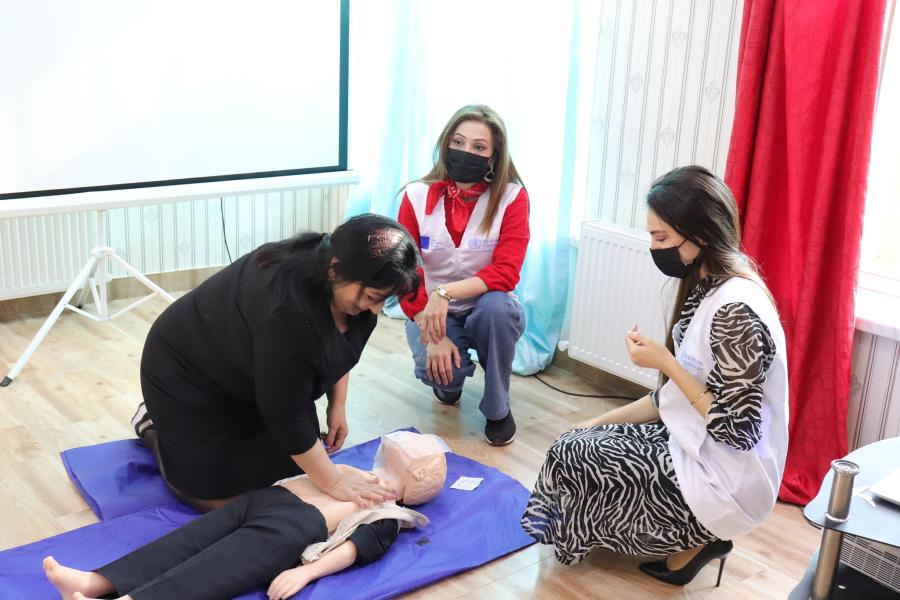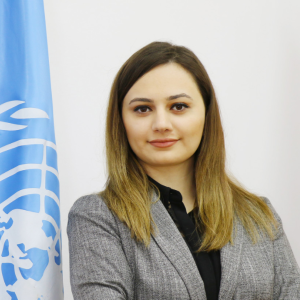EU-WHO project continues to enhance the capacity of healthcare workers and expand efforts on infection prevention and control
11 November 2021
- As part of the EU-funded Solidarity for Health Initiative, WHO Azerbaijan organized 3-day mission to the conflict-affected regions (Barda, Tartar, Agdam, Fuzuli, Agjabadi) to provide further support in the fight against COVID-19 pandemic.

Strengthening the knowledge and skills of healthcare workers on basic life support (BLS) is very important, especially during COVID-19 pandemic. Basic Life Support (BLS) generally refers to the type of care that first-responders, healthcare providers and public safety professionals provide the first aid to save a person’s life who is experiencing cardiac arrest, respiratory distress or an obstructed airway.
To update knowledge and skills of healthcare workers, EU-WHO project has organized training sessions on BLS since September 1 and 300 local healthcare workers have been trained during this period. The training with hands-on practice has provided instructions to promptly recognize several life-threatening emergencies, give closed chest cardiac compressions and deliver appropriate ventilations in adults, children and newborns.
Within the mission, the representatives of the WHO, State Agency on Mandatory Health Insurance and TABIB observed the training sessions and gave their recommendations. To increase training capacity in the region, the discussion was held on the establishment of a new training center at the Barda District Central Hospital in collaboration with the TABIB’s Continues medical education and medical training division.
Moreover, to improve hand hygiene practices among healthcare workers, WHO Azerbaijan provided more than 1000 hand sanitizers (100 ml) and retractable belt clips to 5 health care facilities in the conflict-affected regions. They allow hospital staff to carry their own hand sanitizers with them all times while removing the need to wash hands between each patient contact.
Additionally, 625 posters on hand hygiene myth busters, hand hygiene in different units and how to hand rub and hand wash were distributed among the selected hospitals, relevant instructions were given for performing effective hand hygiene in healthcare settings.
During the visit, previously handed over laptops, modems and software were delivered and installed at the 5 Hygiene and Epidemiology Centers in the conflict affected regions.



